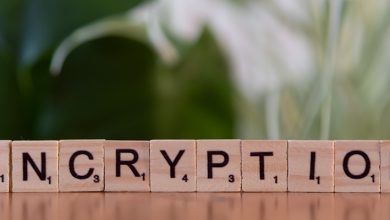Investing in DeFi Projects: Opportunities and Risks to Consider

- Investing in Decentralized Finance: A Beginner’s Guide
- The Rise of DeFi: Exploring the Potential Investment Opportunities
- Understanding the Risks: What You Need to Know Before Investing in DeFi Projects
- Key Factors to Consider When Evaluating DeFi Investment Opportunities
- DeFi vs Traditional Finance: A Comparison of Risks and Rewards
- Mitigating Risks in DeFi Investments: Strategies for Success
Investing in Decentralized Finance: A Beginner’s Guide
Investing in decentralized finance (DeFi) projects can be an exciting opportunity for beginner investors looking to diversify their portfolios. DeFi projects operate on blockchain technology, offering various financial services without the need for traditional intermediaries like banks. However, it’s essential to understand the potential risks and rewards associated with investing in DeFi before diving in.
One of the key advantages of investing in DeFi projects is the potential for high returns. By participating in decentralized lending, borrowing, and trading platforms, investors can earn attractive yields on their assets. Additionally, DeFi projects often offer greater transparency and security compared to traditional financial systems, thanks to the use of smart contracts and blockchain technology.
On the other hand, investing in DeFi projects also comes with its fair share of risks. The decentralized nature of these projects means that there is a higher risk of smart contract bugs or vulnerabilities being exploited by malicious actors. Additionally, the rapidly evolving nature of the DeFi space can make it challenging to assess the long-term viability of a project.
When considering investing in DeFi projects, it’s essential to conduct thorough research and due diligence. Look for projects with a strong track record, experienced development teams, and a clear roadmap for future growth. Diversifying your investments across different DeFi projects can also help mitigate risk and maximize potential returns.
Ultimately, investing in DeFi projects can offer significant opportunities for growth and innovation in the financial sector. By carefully weighing the risks and rewards and staying informed about the latest developments in the DeFi space, beginner investors can take advantage of this exciting investment opportunity.
The Rise of DeFi: Exploring the Potential Investment Opportunities
In recent years, decentralized finance (DeFi) has been gaining significant traction in the world of investing. DeFi projects offer a wide range of potential opportunities for investors looking to diversify their portfolios and capitalize on the growing trend of decentralized finance.
One of the key attractions of DeFi projects is the potential for high returns on investment. By participating in various DeFi protocols such as lending, borrowing, and staking, investors can earn attractive yields on their assets. This has made DeFi projects an appealing option for those looking to generate passive income in the cryptocurrency space.
Additionally, investing in DeFi projects allows investors to participate in the innovative and rapidly evolving world of decentralized finance. These projects are often at the forefront of developing new financial products and services that have the potential to disrupt traditional banking and finance systems. By investing in DeFi, investors can be part of this exciting journey towards a more decentralized and inclusive financial ecosystem.
However, it is important for investors to be aware of the risks associated with investing in DeFi projects. The decentralized nature of these projects means that there is often a higher degree of risk compared to traditional investments. Smart contract vulnerabilities, liquidity risks, and regulatory uncertainties are some of the factors that investors should carefully consider before investing in DeFi projects.
In conclusion, the rise of DeFi presents exciting investment opportunities for those willing to take on the associated risks. By carefully evaluating the potential rewards and risks of investing in DeFi projects, investors can position themselves to benefit from the growth and innovation happening in the decentralized finance space.
Understanding the Risks: What You Need to Know Before Investing in DeFi Projects
Investing in DeFi projects can offer lucrative opportunities for investors looking to capitalize on the growing trend of decentralized finance. However, it’s crucial to understand the risks involved before diving into this space.
One of the key risks to consider when investing in DeFi projects is smart contract vulnerabilities. Smart contracts are the backbone of many DeFi platforms, and if there are bugs or flaws in the code, it can lead to significant financial losses for investors. It’s essential to thoroughly audit smart contracts before investing to mitigate this risk.
Another risk to be aware of is the potential for hacks and security breaches. DeFi platforms are often targeted by hackers due to the large sums of money involved. Investors should research the security measures in place on a platform before investing to ensure their funds are safe.
Furthermore, regulatory uncertainty is a significant risk in the DeFi space. As governments around the world grapple with how to regulate decentralized finance, investors may face legal challenges or restrictions. It’s essential to stay informed about regulatory developments to navigate this risk effectively.
Lastly, market volatility is a risk that all investors should be prepared for when investing in DeFi projects. The cryptocurrency market can experience extreme price fluctuations, which can impact the value of investments. Diversifying your portfolio and setting stop-loss orders can help mitigate the risk of market volatility.
In conclusion, while investing in DeFi projects can be rewarding, it’s crucial to understand and mitigate the risks involved. By conducting thorough research, staying informed about regulatory developments, and implementing risk management strategies, investors can navigate the complexities of the DeFi space more effectively.
Key Factors to Consider When Evaluating DeFi Investment Opportunities
When evaluating DeFi investment opportunities, there are several key factors to consider that can help you make informed decisions. One important factor to look at is the team behind the project. It’s essential to research the team members’ backgrounds and experience in the blockchain and DeFi space to assess their credibility and ability to deliver on the project’s promises.
Another crucial factor to consider is the project’s technology and infrastructure. You should evaluate the project’s whitepaper and technical documentation to understand how the platform works, what problem it aims to solve, and whether it has a viable solution. It’s also essential to assess the project’s security measures and audit reports to ensure that your investment is protected from potential risks.
Furthermore, you should analyze the project’s tokenomics and governance structure. Understanding how the project’s tokens are distributed, used, and incentivized can give you insights into its long-term sustainability and growth potential. Additionally, evaluating the project’s governance model can help you assess how decisions are made within the ecosystem and whether the community has a say in the project’s development.
Moreover, it’s crucial to consider the project’s market fit and competition. Analyzing the project’s target market, user adoption, and competitive landscape can help you assess its growth potential and differentiation from other DeFi projects. You should also evaluate the project’s partnerships and collaborations to understand its network effects and potential for future growth.
In conclusion, evaluating DeFi investment opportunities requires thorough research and analysis of various factors, including the team, technology, tokenomics, governance, market fit, and competition. By considering these key factors carefully, you can make more informed investment decisions and mitigate risks in the volatile DeFi space.
DeFi vs Traditional Finance: A Comparison of Risks and Rewards
When comparing DeFi and traditional finance, it is essential to consider the risks and rewards associated with each. Both DeFi and traditional finance offer opportunities for investors to earn returns, but they also come with their own set of challenges.
One of the key differences between DeFi and traditional finance is the level of risk involved. In traditional finance, investors rely on centralized institutions such as banks and governments to manage their investments. This centralized approach can provide a sense of security, but it also exposes investors to counterparty risk.
DeFi, on the other hand, operates on a decentralized platform, which means that there is no central authority overseeing transactions. While this can offer increased transparency and security, it also means that investors are solely responsible for managing their own investments. This can introduce new risks, such as smart contract vulnerabilities and liquidity issues.
When it comes to rewards, both DeFi and traditional finance offer the potential for high returns. Traditional finance typically provides more stable returns over the long term, while DeFi projects can offer higher short-term gains. However, the volatility of the cryptocurrency market can also lead to significant losses for DeFi investors.
Ultimately, the decision to invest in DeFi or traditional finance will depend on your risk tolerance and investment goals. It is essential to carefully consider the risks and rewards of each option before making any investment decisions.
Mitigating Risks in DeFi Investments: Strategies for Success
When investing in DeFi projects, it is crucial to mitigate risks effectively to ensure success in your investments. Here are some strategies to consider:
- Diversification: One key strategy to mitigate risks in DeFi investments is to diversify your portfolio. By spreading your investments across different projects, you can reduce the impact of any single project failing.
- Research: Conduct thorough research on the DeFi projects you are considering investing in. Look into the team behind the project, the technology they are using, and the potential risks involved.
- Due Diligence: Before investing in any DeFi project, perform due diligence to assess the project’s legitimacy and viability. This includes checking for audits, reviews, and community feedback.
- Risk Management: Implement risk management strategies such as setting stop-loss orders, using smart contracts, and diversifying your investment across different asset classes.
- Stay Informed: Stay up to date with the latest developments in the DeFi space, as new risks and opportunities can emerge rapidly. Being informed can help you make better investment decisions.






